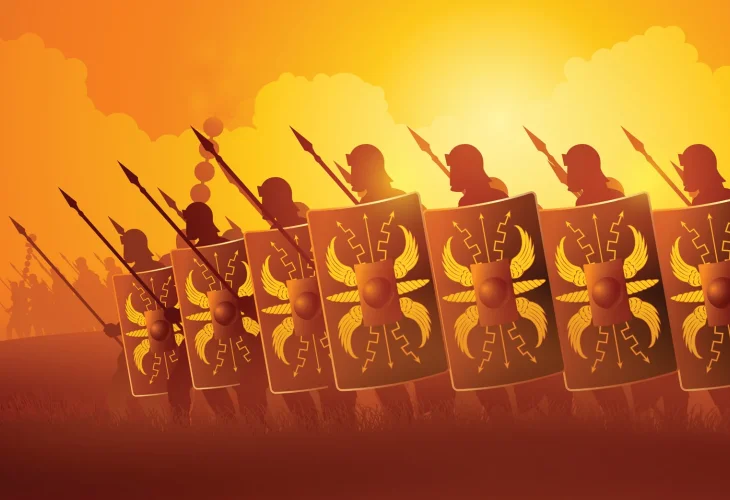Abraham's Brave Stand: A Battle of Courage and Faith
He didn’t face the entire army head-on. Instead, he targeted the precise spot where Lot and the captives were held, descending with his men in one swift move to overcome the guards, gather the captives and spoils, and vanished as quickly as he arrived.
 (Illustration: Shutterstock)
(Illustration: Shutterstock)Abraham marched into battle against the world's kings, who had just defeated nations of giants and Rephaim and destroyed five tremendous cities on the outskirts of what we now know as Israel. He had no divine assurance of success; he ventured into war of his own accord. According to Pirkei DeRabbi Eliezer, this was one of the ten tests of Abraham. Hashem hadn't spoken to him, good or bad. The true test was whether Abraham, by his own initiative, would remain loyal to his nephew by setting out to rescue him, a decision aligned with reason.
According to the sages, Isaiah the prophet, in his words: "Who roused a hero from the east...", is speaking about Abraham our patriarch. Stones and soil transformed into swords and arrows for him. Still, Abraham did not rely solely on miracles. He was the first to stand for justice against great and mighty kings, a stance his descendants would emulate throughout history. Abraham knew the paths between Haran and Canaan thoroughly. As a shepherd familiar with the local terrain, he understood where to climb and where to stealthily advance. He connected with other nomads, possibly even messengers sending information from his family left in Haran, the family of Nahor, from which Rebekah, Rachel, and Leah would later come.
Abraham didn’t annihilate the army of the four kings. He managed to overpower them and liberate Lot and the other captives of Sodom, along with their possessions. The kings of Babylon and Shinar were used to wars on the plains. Their homeland, the land of rivers, is primarily flat, with battles fought by massive armies clashed in open fields. They also defeated the cities of the plain in a valley. The difference between the kings of the plain and Abraham was their lifestyle. The kings lived in an oasis reminiscent of paradise; they didn’t climb mountains or truly understand the land's terrain. They were pampered and detached, unprepared to deal with even the sinkholes around their own dwelling area. In contrast, Abraham was a nomad who explored and assessed every place, driving away robbers and hostile tribes, knowing exactly where he was headed. He caught up with the four kings' camp on the way to Aram, likely somewhere in what is now northern Golan Heights. He didn’t go to war with the entire army; rather, he targeted the exact location where Lot and the captives were, descended with his men all at once, overcame the guards and all the soldiers at that spot, collected the captives and spoils, and disappeared as swiftly as he had arrived. This was a military tactic the Israelites would often use in the future – during the Maccabean revolt and in rebellions against the Romans. Thus, this battle was logical by natural means, and since Abraham passed the test and risked his life for his nephew, he was rewarded with special miracles aiding this military action.
Part of the test was also fulfilling this act for the sake of heaven, not for spoil, and therefore Abraham refused to take even a thread or a sandal strap from the spoils. Especially since it involved the property of the people of Sodom, which was tied to their dubious behavior, Abraham wanted no association with them, "lest you say I have enriched Abraham." However, he wasn’t righteous at others' expense, and he informed the king of Sodom that everyone who went with Abraham to war had the right to take their due share from the spoils. The meeting with the king of Sodom took place in the city of Salem, the ancient name of Jerusalem. The king of Salem was a descendant of Shem (the sages said he was Shem, and some interpret he was one of his descendants, who followed his ways and recognized the unity of Hashem. Even the king of Jerusalem in the days of Joshua was called Adoni-Zedek), and Abraham gave him a tithe from his flock because he served Hashem and offered sacrifices.

